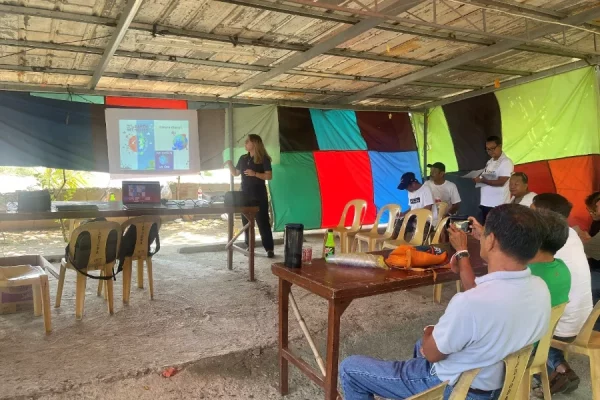Just and Equitable Transition in Energy for Traditional Jeepney Drivers and Operators
By: C-Help Team
Transport is the third-largest emitter of greenhouse gases (GHGs) globally, and the largest source of air pollution and energy-related GHGs, contributing to 34% of total GHG emissions in the Philippines. Thus, the Philippines aims to reduce GHG emissions by consolidating the public transport service and modernizing the jeepney fleet, amongst other efforts.
In 2017, the Department of Transportation issued Department Order No. 2017-11, otherwise known as the Public Utility Vehicle Modernization Program (PUVMP), specifically, to “promote modernized, safe, and environmentally sustainable mode of transportation in the country.” Since then, the PUVMP has been used as justification in granting franchises to modern jeepney operators and in denying renewal of franchises and phase out of traditional jeepneys.
The PUVMP is named as a Nationally Determined Contribution (NDC) Project and climate solution of the Philippines. However, PUVMP fails to observe due process, respect for human rights and just transition in energy towards inclusive low- carbon mobility to ensure the success of climate action.
The Community Legal Help and Public Interest Centre (C-HELP) is working with transport groups by raising the legal and policy questions of justice and equity in the implementation of the PUVMP.
New and emerging technologies, such as electric cars and buses, zero-carbon producing energy sources, as well as policy innovations, are critical for combating climate change. However, to be effective, transport strategies should benefit everyone, including the poorest, according to a new United Nations multi-agency report.
According to the UN report, there is urgent need for transformative action that will accelerate the transition to sustainable transport globally. Transport solutions exist that can help achieve the Sustainable Development Goals and the Paris Agreement, although the report cautions that without the right policies and investments, they will not bring change to where it is needed most.
C-HELP advocates for justice and equity in energy transitions. In the case of PUVMP implementation, we stand with transport groups that PUVMP must (i) be vetted with the PUV drivers, operators and commuters; (ii) respect the rights, needs, values, understandings, and customs of groups involved in, or affected by it; and (iii) distribute the benefits and costs, risks and harms, with the government giving assistance to the poorest and disadvantaged in order to be effective as a climate action.
On July 11, 2023, DLHB Corporation, TEAM UV Express Coop., AMCL Federation, FABJODA, Jonna Joyce N. Panti, Lei Andrew A. Relojas, and Alwyn Ryan Gaviola Mijos filed a Petition for Certiorari and Prohibition before the Supreme Court to challenge Sections 2.4; 3.2.4, 5.2; and 11.2 of DOTr D.O. 2017-011, Section II of the DOTr MC No. 2018-010; and Guideline No. 2 of the DOTr MC No. 2018-013 for being unconstitutional.
The Philippines submitted to the UNFCCC its first NDC in April, 2021, committing to a projected greenhouse gas (GHG) emissions reduction and avoidance of 75%, of which 2.71% is unconditional, for the period 2020 to 2030 for the sectors of agriculture, wastes, industry, transport, and energy. This commitment is referenced against a projected business-as-usual cumulative economy-wide emission of 3,340.3 MtCO2e for the same period. In order to meet these targets, the Philippines rolled out some projects and pursued mitigation actions.
One of these NDC projects is the Public Utility Vehicle Modernization Program (PUVMP) of public respondent DOTr through which the country expects to decarbonize the public transport; specifically, reduce GHGs at 2.91% by 2030 and 2.75% by 2040.
In decarbonizing transport, however, inclusive mobility is imperative. According to the World Bank, “urban mobility is no longer just about moving people around by motorised vehicles”. The transport system must work for the poor and vulnerable, where everyone who can, must walk, bike, commute, and only as a last resort, take the car, where safety and civility are not sacrificed in a highly urbanized and complex city, where those who have less in wheels must have more in roads, where the air, streets, vehicles, and facilities are clean , and that takes into account the public transport drivers, small operators and commuters into the transportation innovation process, helping them co-design, co-develop, co-implement, and co-lead new mobility solutions and practices.
The PUVMP fails to observe the basic tenets of climate action which are adherence to the right of due process, respect of the rights of the people, and promotion of distributive justice, to ensure its success or that it will be a just transition towards inclusive low-carbon mobility.
JOIN US—as volunteer, supporter or donor—in the legal and policy advocacies for just and equitable low carbon transition in the Philippine PUV sector.

